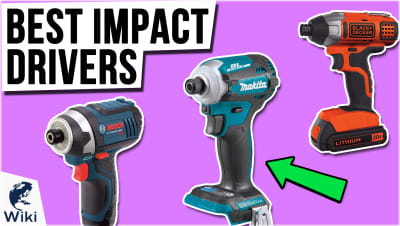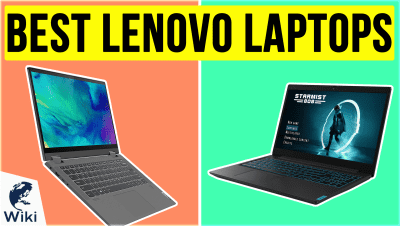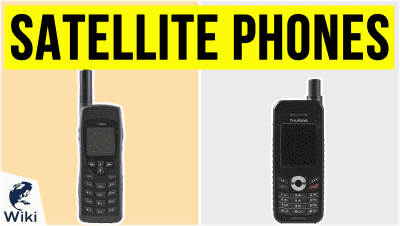What Is ConsenSys?
A leader in the fast-growing cryptocurrency space, ConsenSys has hundreds of developers working to take advantage of the possibilities presented by the Ethereum blockchain. We'll cover what the company is doing and how it's betting big on the future of blockchain. For more on how this technology came about, try this article on ConsenSys founder Joseph Lubin. This video was made with Ezvid Wikimaker.
What Initiatives Make Up Consensys?
- ConsenSys Lab Companies
- Corporate Solutions
- ConsenSys Academy
- ConsenSys Ventures Financial Services
- Ethereal Summit
- The Brooklyn Project
- Topcoder Community
The Future of Blockchain Technology
Is Ethereum A Program Or A Currency?
The Ethereum Network is a blockchain on which transactions can take place. Ether is the currency used to make transactions on this blockchain. You can purchase Ether through a site like Coinbase and use a browser extension like MetaMask in order to make purchases. This is true if you're buying coins through an exchange like ForkDelta, buying crypto collectibles like Factbars, or for games like Etheremon and CryptoKitties. You use Ether to buy these assets, and every time you make a transaction, you have to pay a small amount of Ether as "Gas" to initiate the payment. For more on how buying and selling of digital assets works, check out this guide on how to claim a Factbar.
Blockchain as an Artistic Medium
In Depth
Started by Ethereum co-founder Joseph Lubin, ConsenSys is a Brooklyn-based collective of dozens of companies and hundreds of developers creating the applications and infrastructure necessary to expand the reach of the Ethereum network and its capabilities in creating new decentralized systems. But exactly what is Ethereum, and why do these people think it has such potential?
You're probably familiar with Bitcoin, which has been in the news a lot lately. Bitcoin is a cryptocurrency, a digital form of money that relies on blockchain technology. The idea is that by using a decentralized ledger, users can verify transactions without the need for a central authority. This concept excited pioneers like Lubin who saw the potential of a system where a powerful institution could not manipulate the marketplace because any user can view and audit transaction records.
Lubin worked with Anthony Di Iorio and Vitalik Buterin to found Ethereum, which took the principles of blockchain from Bitcoin and expanded upon them to involve the storing of programs, not just data. Ethereum incorporates "Smart contracts" to allow for the development of applications that take advantage of its blockchain.
Lubin worked with Anthony Di Iorio and Vitalik Buterin to found Ethereum, which took the principles of blockchain from Bitcoin and expanded upon them to involve the storing of programs, not just data.
Beyond Bitcoin and Ethereum, there are many different types of coins available. Often companies will issue an "I.C.O.," where they sell tokens that represent a stake in their company, or use those tokens as currency to participate in that company's business. You can use Ether to buy and sell these tokens.
When you make a transaction on the Ethereum network, no person is verifying your payment. Instead, it goes through a smart contract for the asset that you're buying or selling. To avoid the chaos of unreliable scripts clogging the blockchain, a set of standards called ERC20 was created. ERC20 is a set of six functions for these smart contracts to ensure integration with the blockchain, and most digital wallets that accept Ethereum will also accept ERC20 tokens.
ERC20 tokens are like Bitcoin and Ether in that they are fungible, meaning all coins of a certain currency are the same. If you have two Bitcoins, and you plan to sell one, it doesn't matter which one you sell because they are worth the same amount. You can also deal in fractions of a coin in the same way you can deal in dollars and cents. But some assets are unique, or non-fungible.
You can also deal in fractions of a coin in the same way you can deal in dollars and cents.
To handle unique assets, ERC721 was created. This is a standard for smart contracts dealing in digital assets that are not all the same. One popular example is Factbar, online representations of facts that are researched and verified. If you own a Factbar, you are the only person who owns it at that time, and every Factbar has its own unique value. Highly-desirable Factbars are therefore very valuable because they are rare.
The ability to employ these smart contracts has led to an explosion in dapps, applications where users can buy and sell tokens. These include fungible tokens issued by companies, crypto collectibles like Factbar, and games like CryptoCountries, where individual tokens are sold for high amounts if they have desirable traits. The value of Ether has skyrocketed, and as a large holder, Lubin's personal wealth has grown as well.
ConsenSys was created to develop decentralized software and applications for the Ethereum blockchain, but has grown to dozens of companies. Among these are BTC Relay, which uses the Ethereum Blockchain to verify Bitcoin transactions, and Ujo Music, a platform for verifying music rights and royalty payments. ConsenSys also backs well-known applications like MetaMask, the popular digital wallet.
ConsenSys also backs well-known applications like MetaMask, the popular digital wallet.
Among the many areas in which ConsenSys is expanding is finding ways beyond currency to take advantage of the blockchain. This can be electronic signatures of documents, using blockchain to verify a user's identity with Zug ID, and finding ways to encourage green energy consumption with Grid+, which helps users cut down on energy costs with a simple app. It's possible that not all of these dozens of ventures will work out, but the company is committed to finding new spaces for Ethereum.
All of this highlights the main idea behind ConsenSys, which is that beyond changing how we invest and pay for things, we can make other aspects of society more egalitarian and secure by giving all citizens access to transaction records. ConsenSys is committed not just to development, but also to educational initiatives so users will know how to take advantage of this technology.
Lubin has also founded The Brooklyn Project, which aims to solve problems in the Ethereum blockchain and address criticisms of this growing marketplace. In announcing the Brooklyn Project, Lubin laid out his belief that blockchain growth will be "distributed more evenly across society than the top-heavy economic growth to which we've unfortunately grown accustomed."
Lubin has also founded The Brooklyn Project, which aims to solve problems in the Ethereum blockchain and address criticisms of this growing marketplace.
Blockchain is still relatively new, and only a small percentage of the population currently uses cryptocurrencies. Joseph Lubin is betting big that this technology will continue growing, and that with proper oversight and the creation of decentralized methods of researching and rating assets, the Ethereum blockchain will be a major part of changing our world for the better and building a more equitable future through new financial and social systems.















